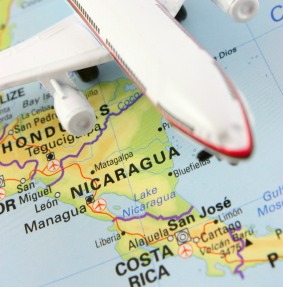How Matthew Soerens became passionate about immigration issues.
In the Old Testament, King David—the greatest of the kings of Israel and the only whom God called “a man after my own heart”—made an uncharacteristically bad decision that led him to commit adultery and then, in the wake of Bathsheba’s pregnancy, murder (2 Samuel 11). Despite such blatant offenses, though, David could not recognize his sin on his own.
Before David could acknowledge his sin and repent, he had to see his own activity in another context, as an external observer to a parallel story. The prophet Nathan shrewdly approached David not with a direct confrontation but by telling him a story of a wealthy man who, despite owning fields full of livestock, steals the beloved lamb of a very poor man in order to make dinner for a guest. When David burns with anger and orders that the wealthy man pay for his crime, Nathan turns the table on him: “You are the man!” (2 Samuel 12:7). Only then—when seeing the parallel between his own actions and what he immediately recognizes as sin in another—can David recognize his wrongdoing, repent, and seek God’s forgiveness and restoration.
It took a similar situation for me to realize, some years ago, how un-biblical my attitude towards immigrants coming to the U.S. was. For a long time, my views on immigrants were primarily formed by what I saw and heard on television, which, given the media I was consuming at the time, was primarily negative. I believed the worst about immigrants—they were invaders, criminals, out to steal American jobs—and it never occurred to me either that some of the information I was hearing might be false or that my identity as a follower of Christ might cause me to view immigrants differently.
God took me out of my context to open my eyes. In 2003, I spent a summer working with a wonderful mission organization called Christ for the City in a poor neighborhood of San Jose, Costa Rica called La Carpio, which is notorious in Costa Rica for squalid living conditions and crime. As I bumbled through broken Spanish to lead Bible studies and played soccer with the poor residents of La Carpio, I learned that most of them were either first- or second-generation immigrants from Nicaragua.
Nicaraguans account for as much as 15% of the Costa Rican population, and many are present unlawfully. Nicaraguans like my friends in La Carpio migrate south because the economic opportunities are so much greater in Costa Rica, a relatively wealthy country with a Gross Domestic Product per capita that is more than seven times that of its northern neighbor. Faced with extreme poverty, many Nicaraguans migrate in search of work and sustenance—which they generally find, filling the lowest-paying and least-desirable jobs, which most Costa Ricans would be unwilling to do themselves. Despite filling an important role in the Costa Rican economy, though, many Costa Ricans loathe the Nicaraguan immigrants, presuming (rightly or, more likely, wrongly) that they are responsible for all crime committed in the country, that they steal jobs, and that they destroy the country’s culture.
Throughout the summer that I spent in San Jose, amidst hearing some of the complaints about Nicaraguan immigrants and reading ugly things about them on the graffiti of the bus I rode to La Carpio each day, I also got to know some of these Nicaraguan families and hear their stories. I was startled by the discrepancy between the rumors about Nicaraguan immigrants and the real people whom I knew: not perfect people, but hard-working people who loved their families, many of them believers. The treatment to which they were subjected angered me—yes, some had illegally entered the country, but that did not justify the slander and mistreatment that my friends experienced.
As I returned to the United States, though, God used my experience in Costa Rica to convict me: didn’t I hold attitudes toward some Mexican immigrants that were very similar to what some Costa Ricans were saying about my Nicaraguan friends? I felt that God was challenging me to get to know my immigrant neighbors in the U.S., including those who are undocumented, and to seek to extend to them the same love and hope in Jesus Christ that had been my mission in Central America. Like David, I needed to see my own story through different lens in order to be able to recognize my own sin.
It’s easy, as we look as outsiders at humanitarian crises and situations of injustice in other contexts, to see what a Christian response should be. We praise believers in the Dominican Republican who offer Christian hospitality to Haitians fleeing a catastrophic earthquake, but much of Dominican society seeks their deportation on the charges that they bring disease, take jobs, and are a threat to national sovereignty. Many churches are eager to help lawfully-admitted Iraqi and Chin Burmese refugees once they are in the U.S. (as we should be), but would we have scorned them when they were in Jordan or Malaysia, respectively, without legal status, as many in those countries do? From a safe distance, we express compassion for the victims of famine in the Horn of Africa, but those who flee the region in search of food face opposition when they reach the primarily-Christians countries of sub-Saharan Africa. Throughout the world, it’s easier for the Church to be faithful to the biblical call to welcome strangers when it’s merely a theoretical command, not one that shows up on our doorstep. But it’s precisely then that our right beliefs get turned into the “good works” that God, in his sovereignty, “has prepared in advance for us to do” (Ephesians 2:10).

